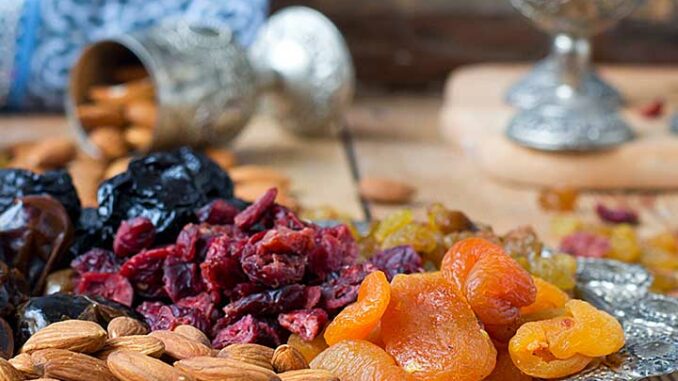
Introduction:
Estrogen, a key hormone in the human body, plays a pivotal role in various physiological functions, including reproductive health, bone density, and cardiovascular well-being. Maintaining a balanced level of estrogen is crucial for overall hormonal harmony. While the body produces estrogen naturally, certain foods contain compounds that can support estrogen levels. In this extensive article, we’ll explore the top 21 estrogen-rich foods that you should consider including in your diet. Whether you’re aiming to support reproductive health, manage menopausal symptoms, or simply foster hormonal balance, these foods can be valuable additions to your nutritional arsenal.
1. Flaxseeds: Omega-3 Powerhouses:
Flaxseeds are rich in lignans, plant compounds with estrogen-like properties. Consuming flaxseeds can support hormonal balance and provide essential omega-3 fatty acids, contributing to overall health.
2. Soy Products: Nature’s Estrogen Mimic:
Soy products, such as tofu, tempeh, and soy milk, contain phytoestrogens called isoflavones. These compounds have been shown to have estrogen-like effects, making soy an excellent addition for hormonal support.
3. Sesame Seeds: Tiny Nutrient Powerhouses:
Sesame seeds are packed with nutrients and contain lignans that can exert estrogenic effects. Sprinkle them on salads, yogurt, or incorporate them into your cooking for a flavorful and nutritious boost.
4. Chickpeas: Protein and Phytoestrogens:
Chickpeas, a versatile legume, contain compounds with estrogenic activity. Alongside providing plant-based protein, chickpeas contribute to hormonal balance in the body.
5. Garlic: Flavorful Hormonal Harmony:
Garlic contains allyl sulfides, compounds that have been linked to estrogen-like effects. Incorporating garlic into your meals not only enhances flavor but also supports hormonal health.
6. Berries: Antioxidant-Rich Estrogen Boosters:
Berries, such as strawberries, blueberries, and raspberries, are rich in antioxidants and fiber. These fruits can indirectly support hormonal balance by promoting overall health and well-being.
7. Dried Fruits: Nutrient-Dense Estrogen Sources:
Dried fruits like apricots, dates, and prunes contain polyphenols with estrogenic properties. Including these nutrient-dense snacks in your diet can provide a natural boost to estrogen levels.
8. Whole Grains: Fiber for Hormonal Health:
Whole grains like oats, quinoa, and brown rice offer fiber and essential nutrients. The fiber content aids in estrogen metabolism, contributing to a balanced hormonal environment.
9. Nuts: Healthy Fats and Estrogenic Compounds:
Nuts, such as almonds and walnuts, provide healthy fats and contain phytoestrogens. Snacking on nuts can be a delicious way to support hormonal harmony.
10. Broccoli: Cruciferous Veggie for Hormonal Support:
Broccoli, a cruciferous vegetable, contains a compound called indole-3-carbinol, which may positively influence estrogen metabolism. Including broccoli in your diet promotes overall health and hormonal balance.
11. Red Grapes: Resveratrol and Phytoestrogens:
Red grapes, particularly in the form of red wine, contain resveratrol and phytoestrogens. Moderation is key, but the occasional indulgence can provide potential benefits for hormonal health.
12. Pomegranates: Antioxidant-Rich Estrogen Boosters:
Pomegranates are rich in antioxidants and contain compounds that may have estrogenic effects. Incorporating pomegranates or their juice into your diet can contribute to hormonal balance.
13. Green Tea: Polyphenols for Hormonal Harmony:
Green tea is loaded with polyphenols, including catechins, which have been studied for their potential impact on hormonal balance. Enjoying a cup of green tea can be a soothing way to support your health.
14. Kale: Nutrient-Dense Leafy Green:
Kale, a nutrient-dense leafy green, contains indole-3-carbinol and other compounds that can positively influence estrogen metabolism. Including kale in salads, smoothies, or as a side dish enhances both flavor and nutrition.
15. Cranberries: Phytoestrogens in a Berry:
Cranberries contain phytoestrogens, contributing to their potential benefits for hormonal health. Enjoy fresh cranberries, cranberry juice, or incorporate them into dishes for a tangy twist.
16. Beans: Protein and Phytoestrogen Combo:
Various beans, including black beans and kidney beans, contain phytoestrogens alongside providing plant-based protein. Incorporate beans into soups, salads, or main dishes for a nutritious estrogen boost.
17. Sunflower Seeds: Crunchy Nutrient Powerhouses:
Sunflower seeds are not only crunchy snacks but also sources of phytoestrogens. Sprinkle them on salads, yogurt, or enjoy them on their own for a tasty and nutritious estrogen-rich treat.
18. Dark Chocolate: Indulgence with Estrogenic Properties:
Dark chocolate, when consumed in moderation, can offer phytoestrogens along with its delightful taste. Opt for chocolate with higher cocoa content for potential hormonal benefits.
19. Citrus Fruits: Vitamin C and Phytoestrogens:
Citrus fruits, such as oranges, grapefruits, and lemons, provide vitamin C and may contain phytoestrogens. The combination of nutrients supports overall health and hormonal balance.
20. Whole Soy Foods: Beyond Tofu and Tempeh:
In addition to tofu and tempeh, incorporating whole soy foods like edamame and soybeans into your diet provides a variety of estrogenic compounds for hormonal support.
21. Cabbage: Cruciferous Veggie for Estrogen Metabolism:
Cabbage, another cruciferous vegetable, contains compounds that may positively influence estrogen metabolism. Including cabbage in your diet diversifies your nutrient intake for overall well-being.
Conclusion:
Achieving hormonal balance is a complex yet essential aspect of overall health, and the inclusion of estrogen-rich foods can be a valuable strategy. From soy products and flaxseeds to berries, nuts, and dark chocolate, incorporating these foods into your diet can contribute to a harmonious hormonal environment.
It’s important to note that individual responses to these foods may vary, and a balanced and varied diet is key. Before making significant changes to your diet or introducing new foods, especially if you have existing health conditions or concerns, consulting with healthcare professionals or registered dietitians is advisable. Embrace the power of these estrogen-rich foods as part of a holistic approach to nutrition, supporting your well-being from the inside out.